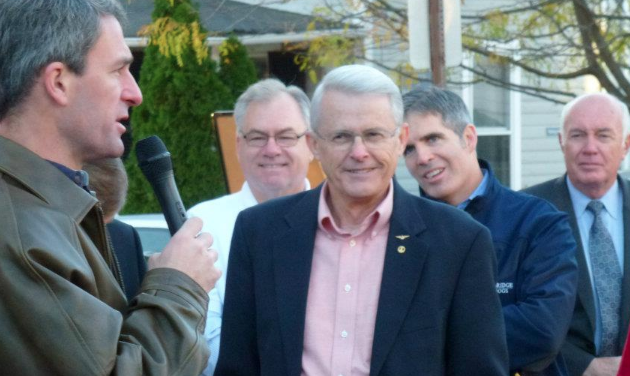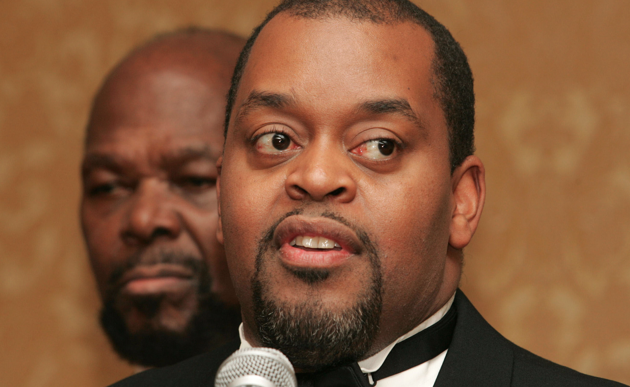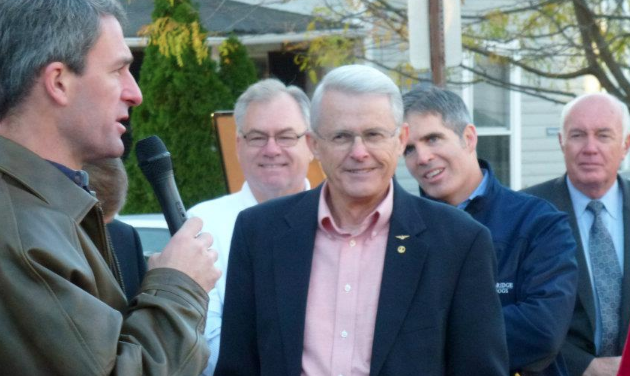
Republican attorney general Ken Cuccinelli introduces Richard H. Black at a 2011 rally.
Richard H. “Dick” Black, the Republican congressional candidate notorious for questioning whether marital rape should be a crime, announced Wednesday that he had dropped out of the running for the Republican nomination in Virginia’s 10th district.
In an email to a conservative Virginia blog, Black explained that he was dropping his bid in order to remain in the Virginia Senate, which is split 20-20 between Republicans and Democrats. (Virginia’s lieutenant governor, Democrat Ralph Northam, can cast the deciding vote in the event of a tie.) Black wrote that he made the decision after meeting with Republican caucus leaders in Richmond.
Black’s campaign was extremely short-lived and controversial from the start. He filed to run on January 8, just two weeks ago. In that time period, Mother Jones reported on Black’s history of controversial remarks, including a statement he made in 2002 when the Virginia House, where Black served at the time, was weighing legislation to allow prosecutions in cases of marital rape. Black said: “I don’t know how on earth you could validly get a conviction in a husband-wife rape when they’re living together, sleeping in the same bed, she’s in a nightie and so forth. There’s no injury, there’s no separation, or anything.”
Black also deemed emergency contraception, which does not cause abortions, to be “baby pesticide.” In the 1990s, to demonstrate why libraries should block pornography on their computers, Black invited a TV reporter to film him using a library terminal to watch violent rape porn—prompting the only complaints Loudoun County librarians had ever received about a library patron viewing pornography.
Black would have stood a good chance of capturing the GOP nomination if Republican officials had chosen to select a candidate by convention rather than by primary. Conservatives have dominated Virginia’s conventions in recent years, and Black commands substantial support among the conservative grassroots. But many moderate GOP officials worried that Black, like other Republican nominees selected by convention, would prove too unpalatable to win a general election. The open seat Black was vying for had belonged for more than two decades to Rep. Frank Wolf, a moderate Republican.
Each election cycle, local Virginia Republican officials can decide anew whether to nominate candidates in their districts through a primary or through a convention. GOP officials in the 10th district will decide between those two options today. But without Black in the race, the odds favor state Rep. Barbara Comstock, who is well-connected to the Republican establishment. Comstock is best known for operating a secret defense fund for Scooter Libby, Dick Cheney’s former chief-of-staff who was convicted in 2007 of leaking information that compromised CIA operative Valeria Plame, and for her feverish stint as an opposition researcher against Hillary Clinton in the 1990s.













